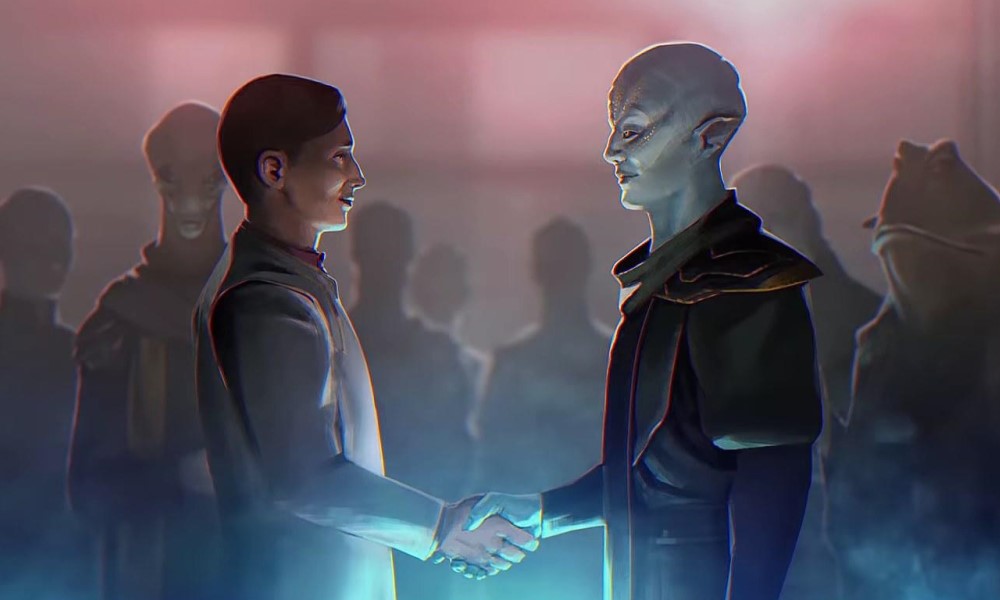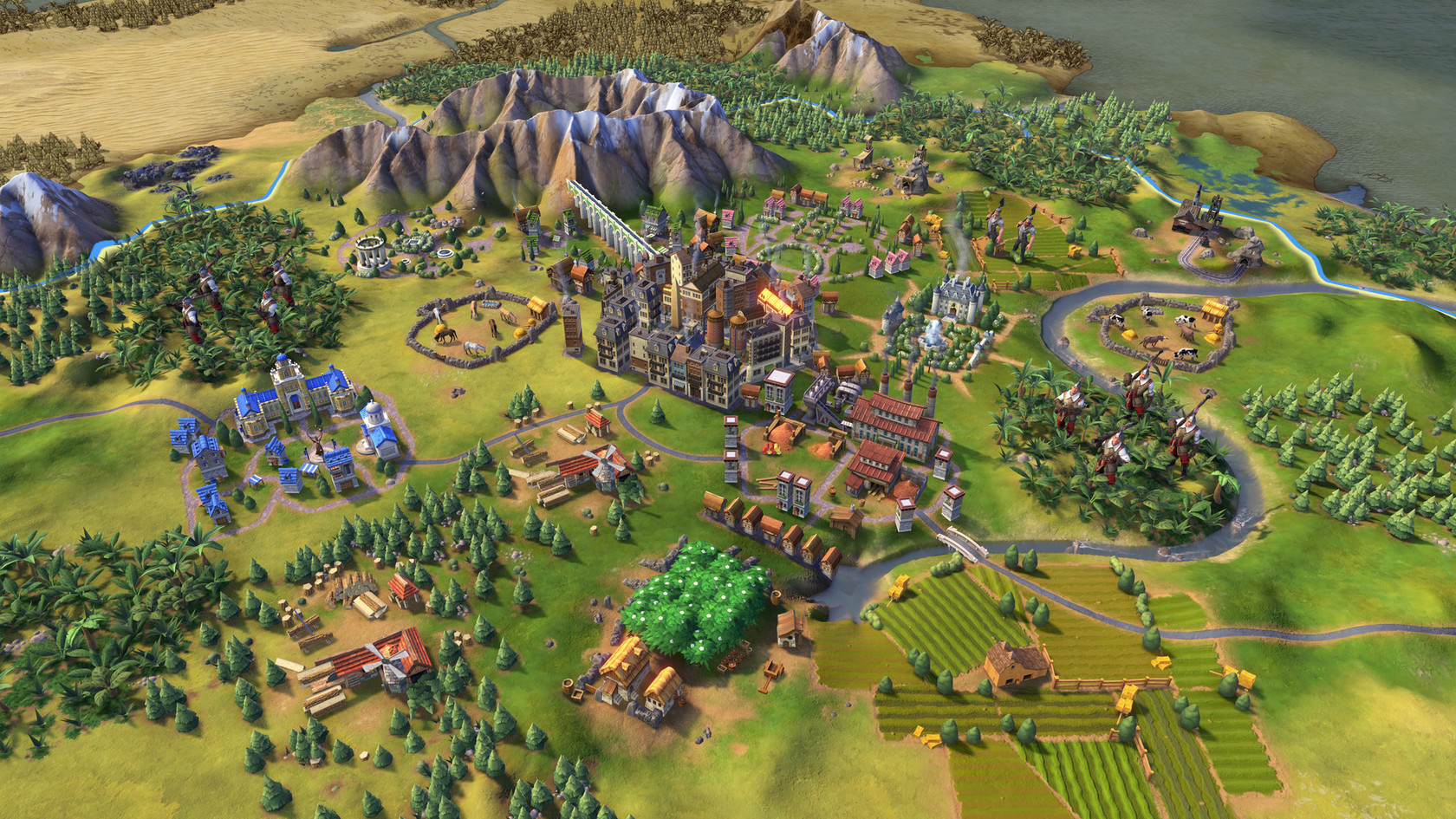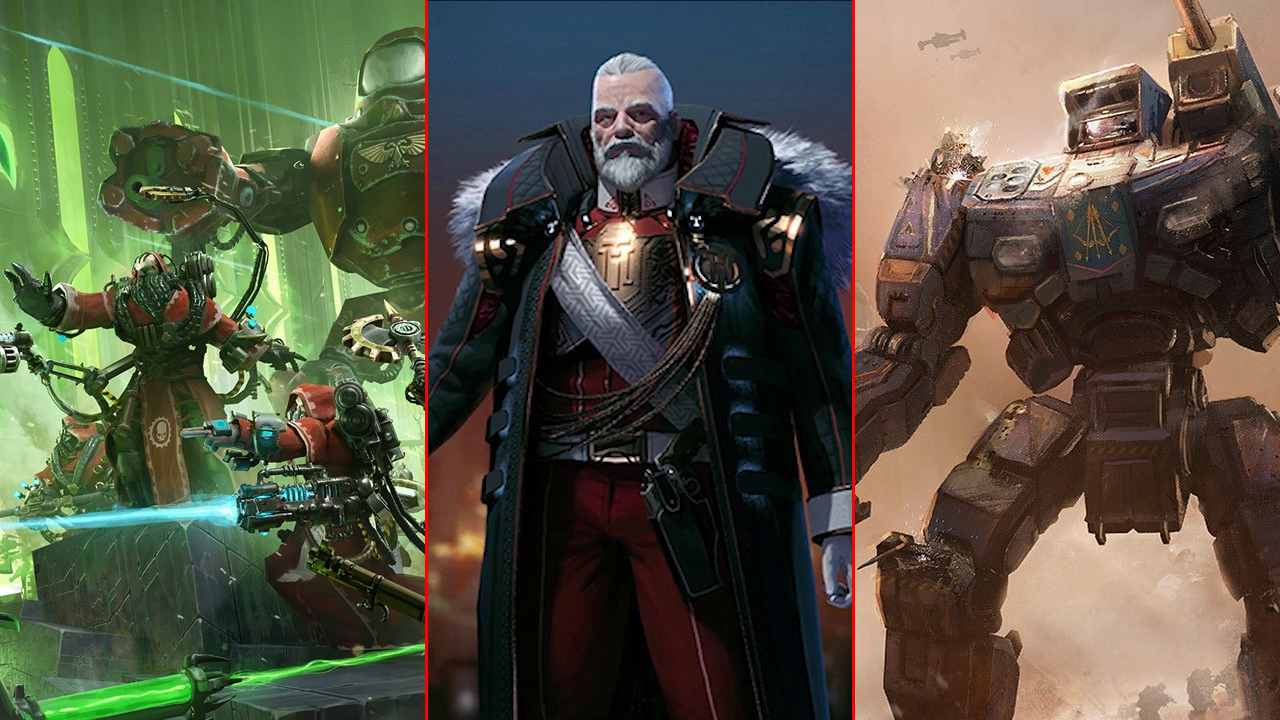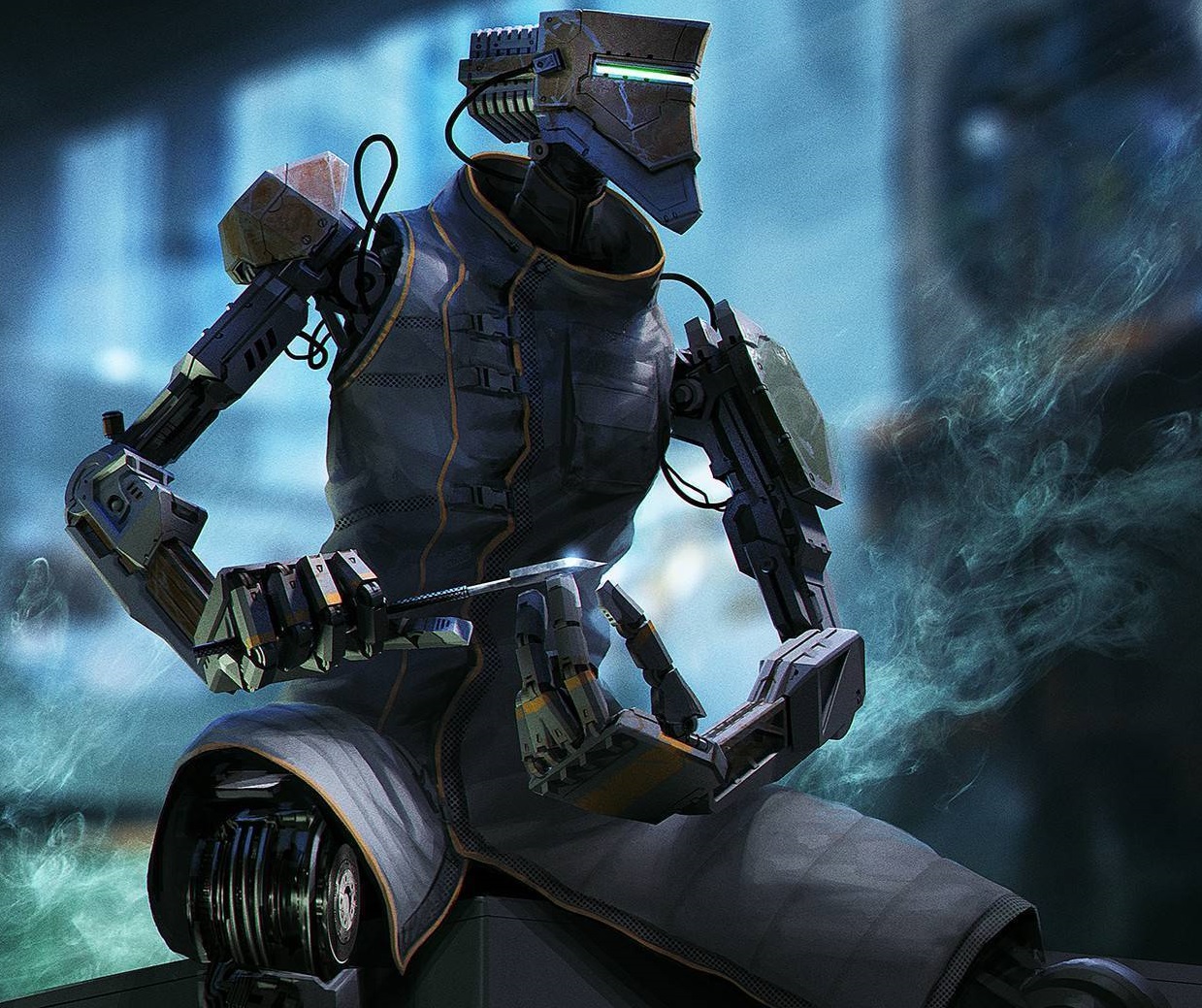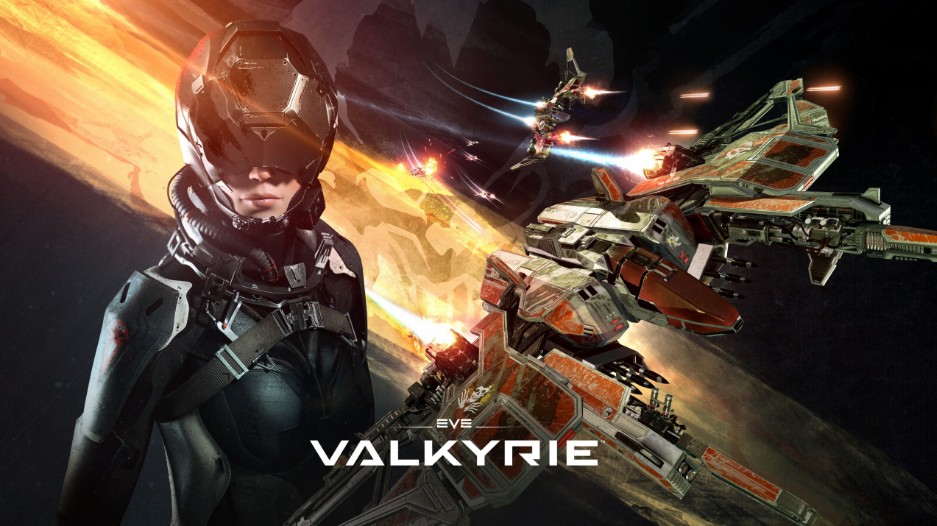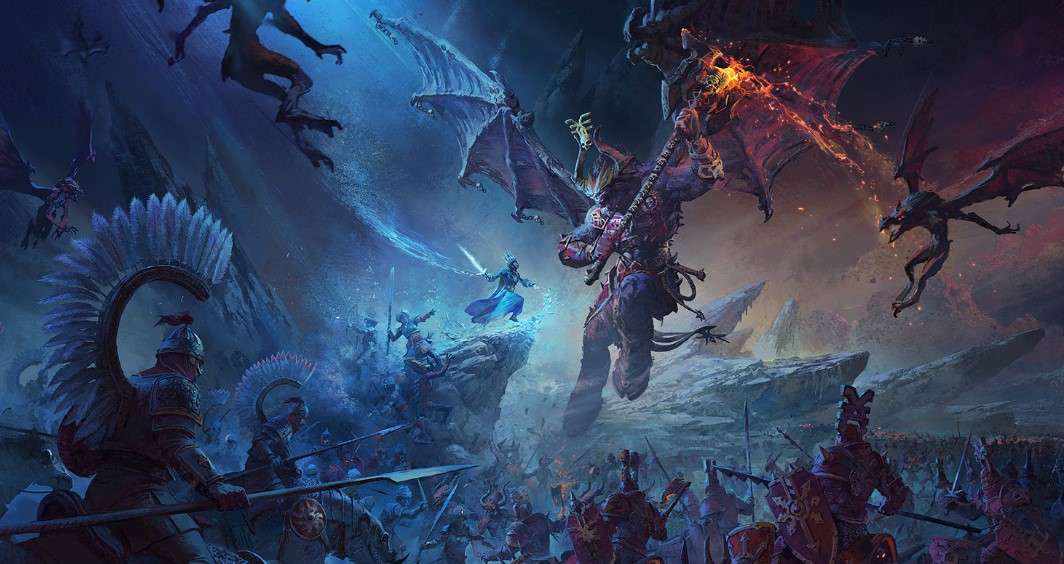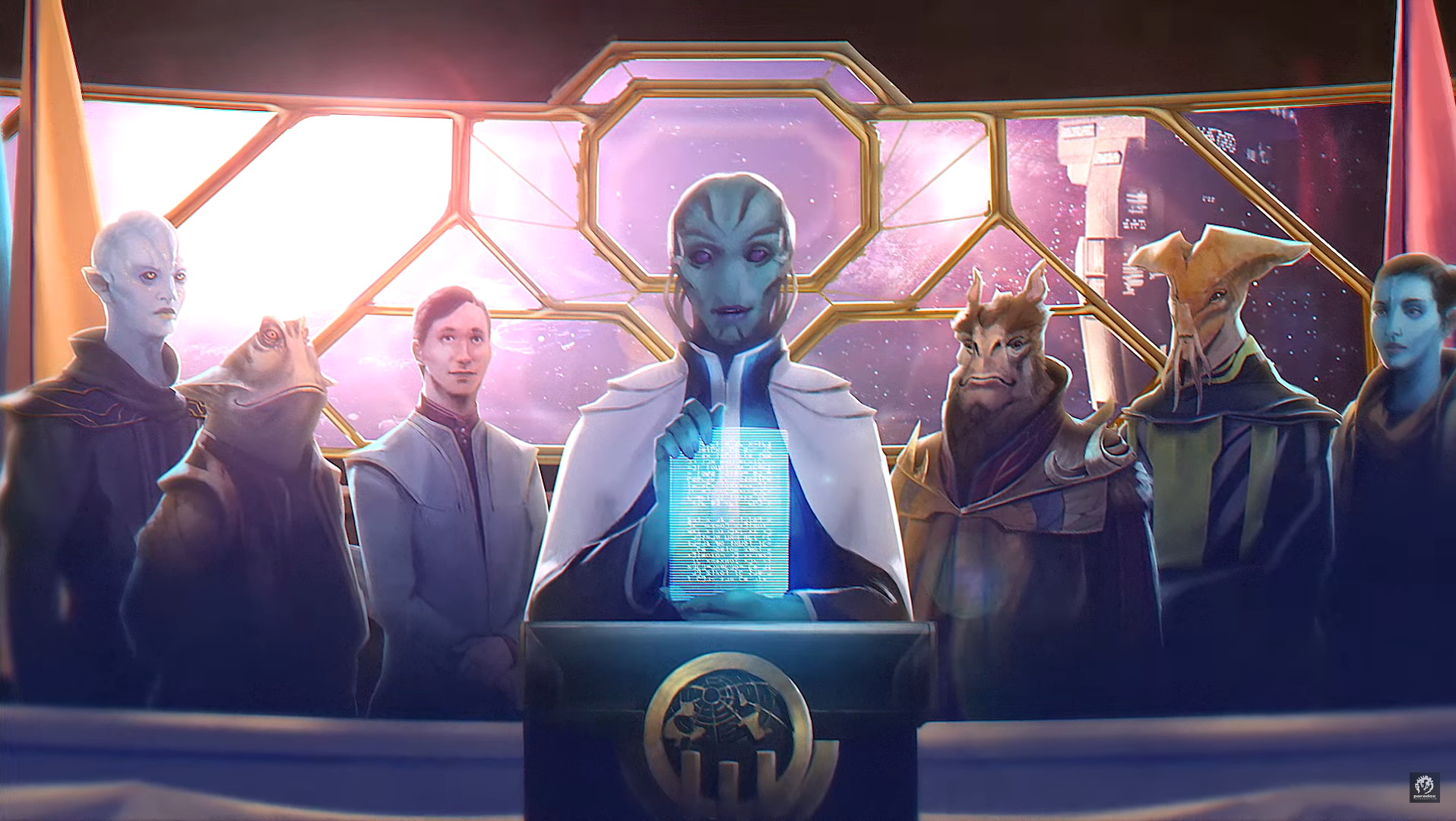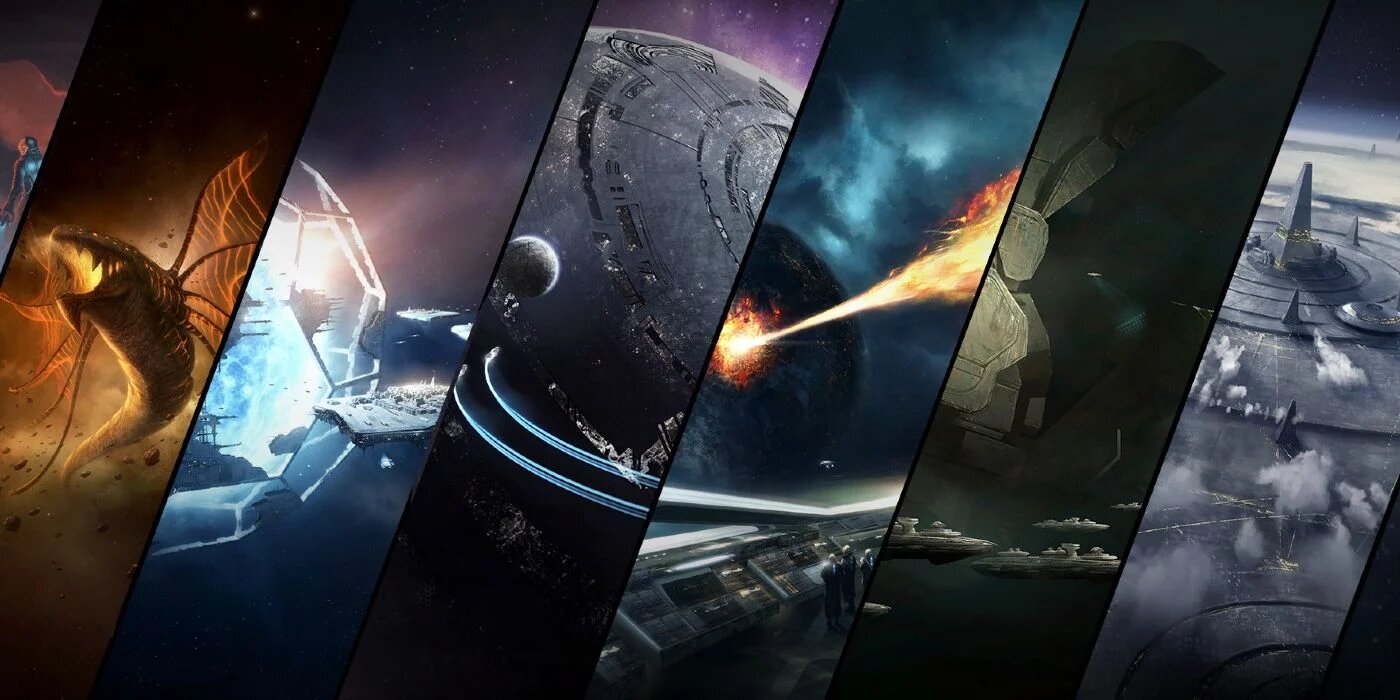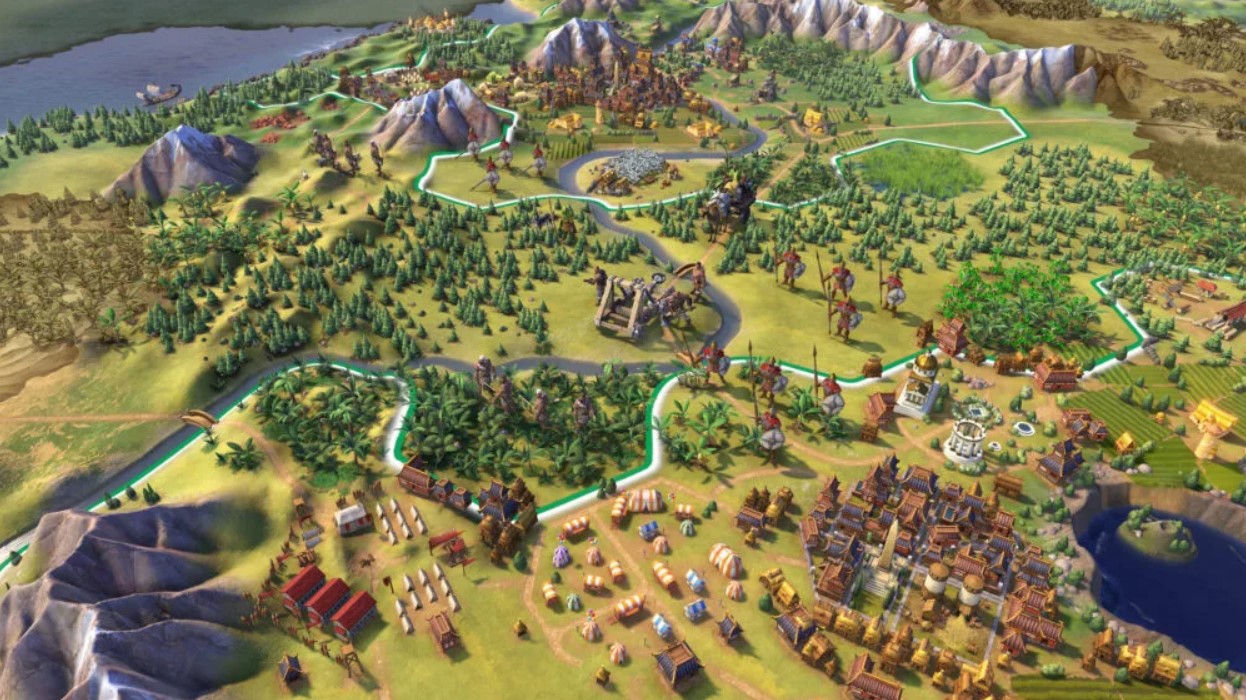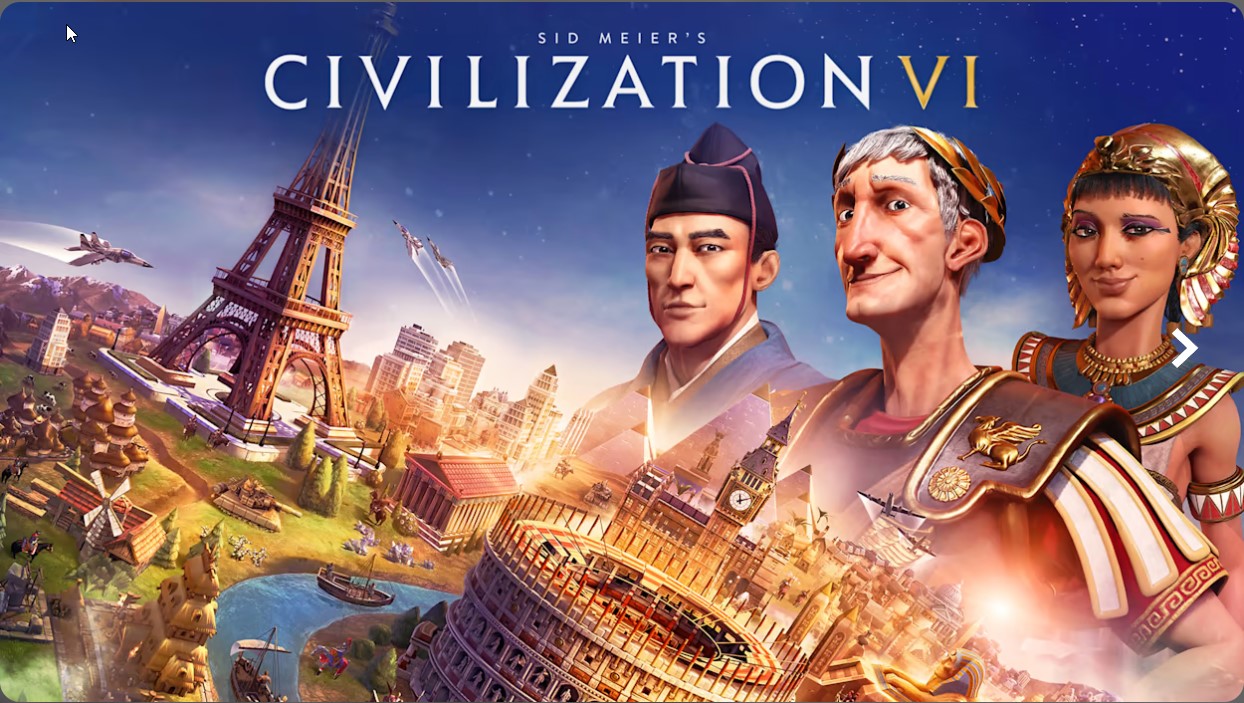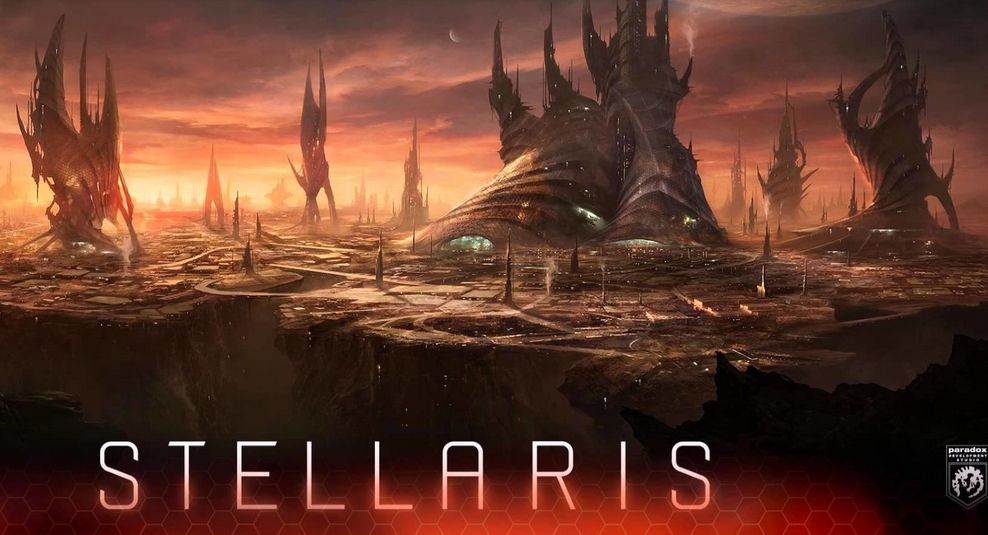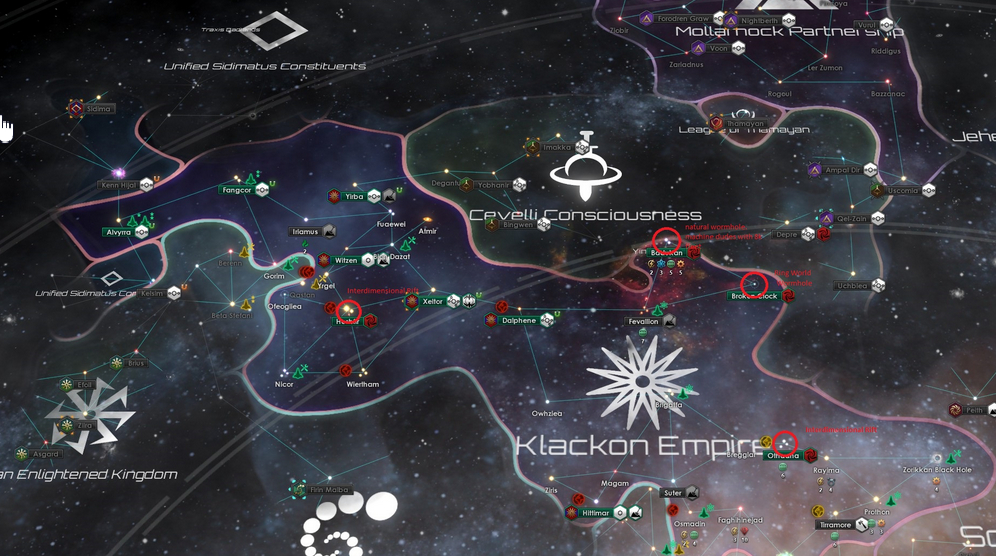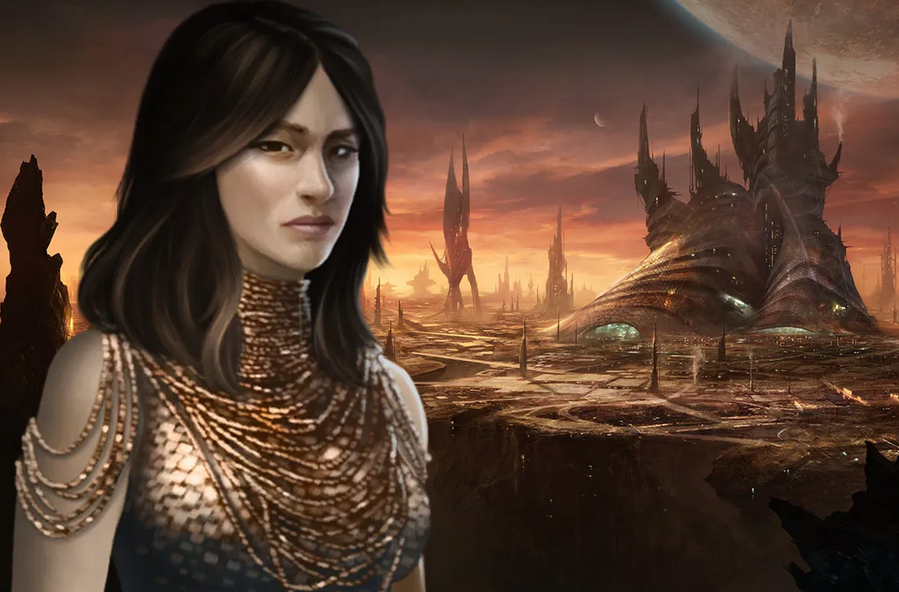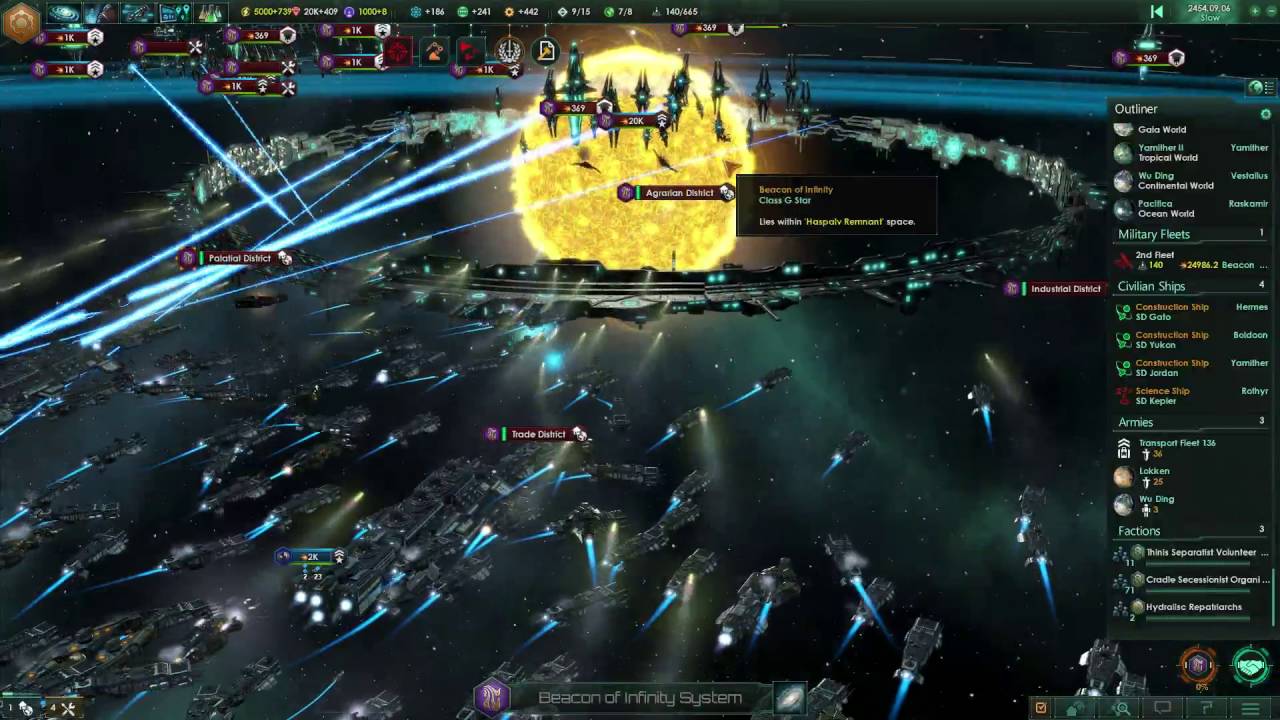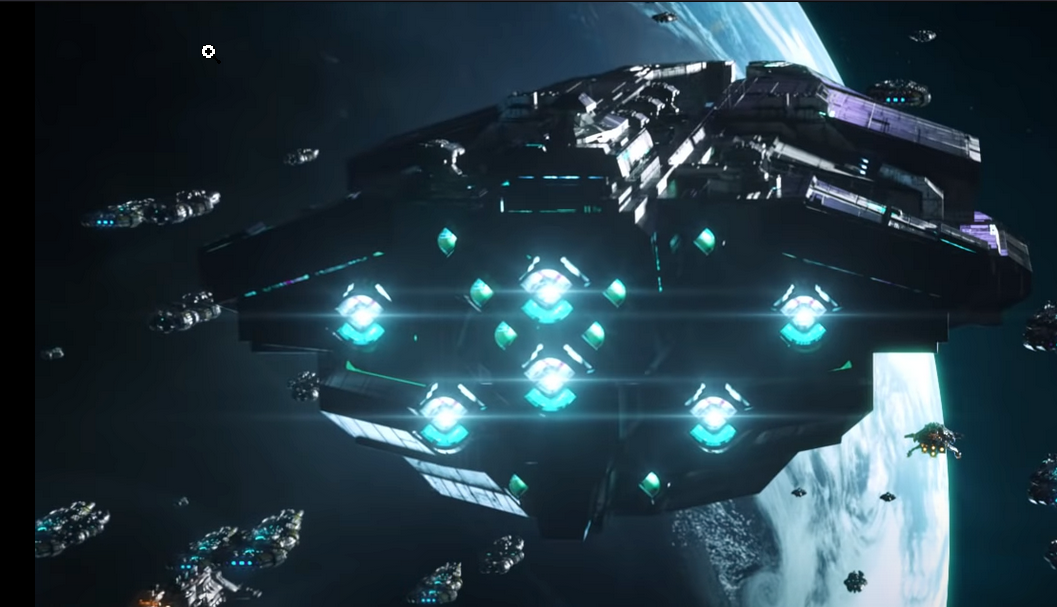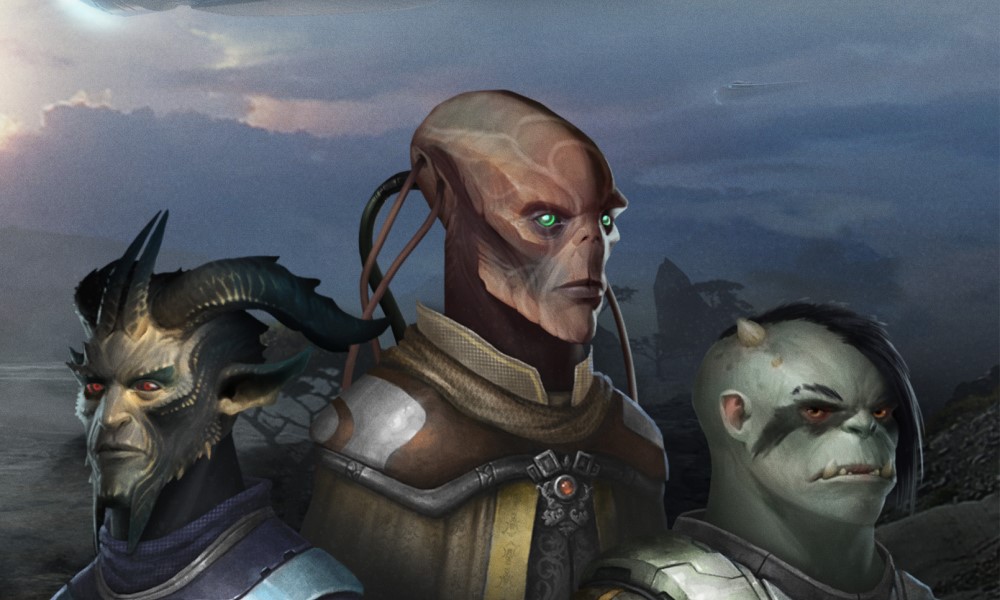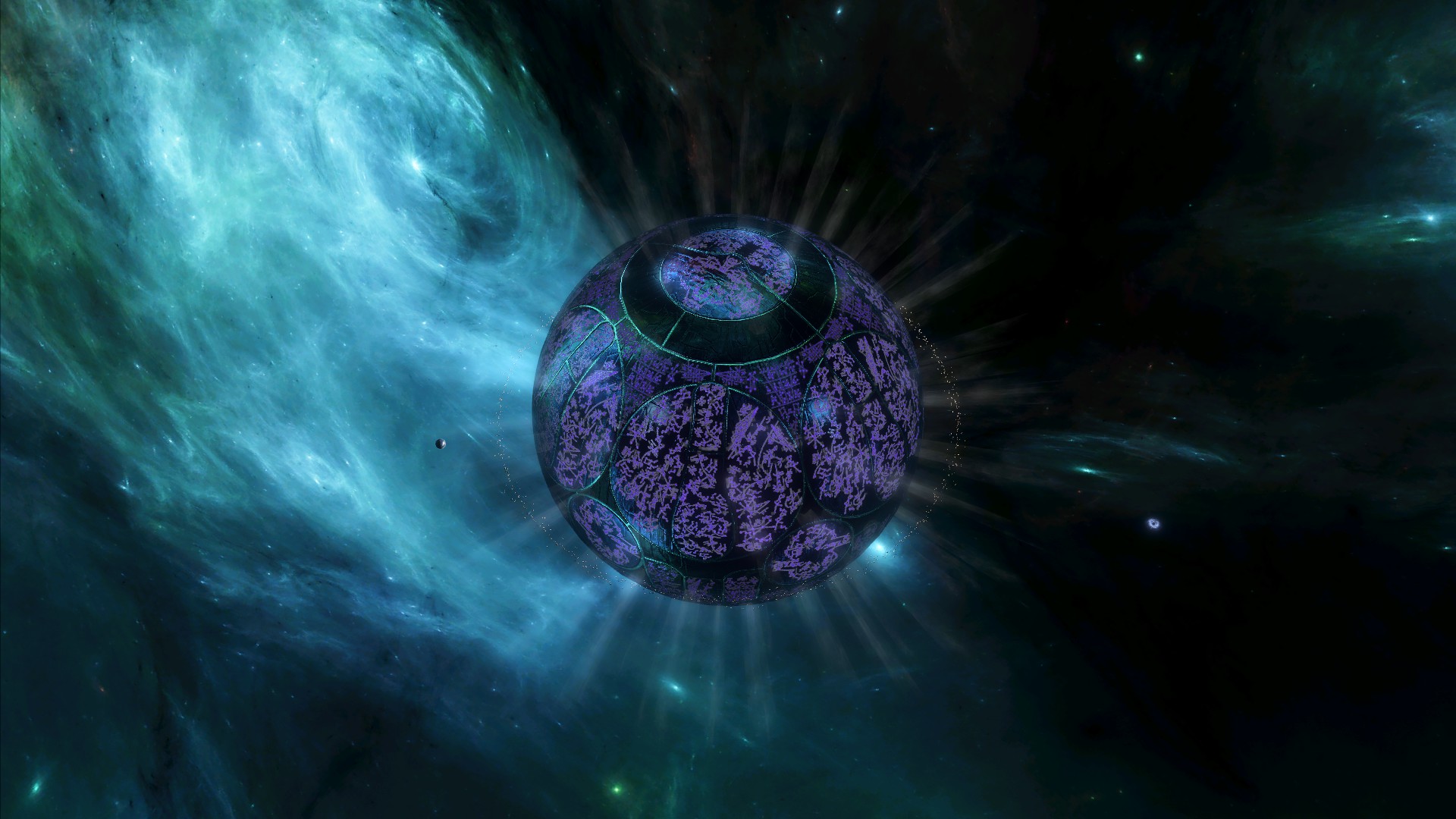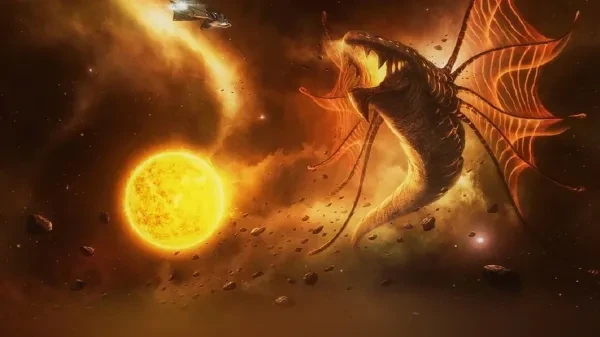
Do you like 4X games? Are you interested in long-term strategy? Do you like games that keep you on your toes, where every turn matters? Do you just have to play one more turn?
If you’re like me, you probably started one of these games thinking you’re just going to have 20 minutes of fun, only to see the sun on your window and realize you’ve played through the night. I might be guilty of flunking a couple of math exams during high school due to this. Just don’t tell my old teachers, okay?
What’s 4X? It stands for Explore, Expand, Exploit and Exterminate. It’s a subset of strategy games that originates from board games. During the ’90s, the original Sid Meier’s Civilization pushed the genre to fame. While strategy gaming is no longer as prevalent on PC as it once was, the genre is still alive and well, and has since been my favorite video game genre.
The codifiers of this genre are the aforementioned Sid Meier’s Civilization, Master of Magic, and Master of Orion. All 90’s titles that aren’t going on the list simply because their age really shows, and younger players might be turned off by the clunkiness of ‘90s games.
I’ve been playing 4x games ever since I was a little kid. In fact, by now I’m pretty confident I must have played most 4X titles released in the last 20 years. The hardest aspect of this list is ranking these titles, I just love this genre too much.
It feels wrong to have to choose between them. But I do have to choose, and so here is my top 15 list of 4X games that you can play today and have tons of fun!
15 - Humankind
Humankind might just have some more tricks up its sleeve.
Released just last year, Humankind marketed itself heavily as a “civ-killer,” a History-focused 4X title that wanted to snatch the crown of the Civilization series. Civ has long held the heavyweight champion belt for 4X, so throughout the years a lot of enterprising designers have dreamed of being the next Sid Meier. Is Humankind that game? Well… No. But it’s still a whole lot of fun.
Now, to be honest, this game had a bit of a rocky launch, it’s sometimes been compared to a 4X version of No Man’s Sky. This game was plagued by bugs and balance issues when it was launched. If you picked the Huns in the Classical Era, you could pretty much win right then and there, because they could both grow fast and severely disrupt other civilizations with relative ease.
But I also had a lot of fun with it. The Civ titles are well and good, but their dated design is really starting to show. The last installments of the series just aren’t doing it for me. With Humankind, I saw a nice breath of fresh air into the genre, it gave me a glimpse of what historical 4X games could be.
Humankind is definitely a rough gem, but a gem nonetheless. I think the devs have already corrected most of the egregious issues with the launch version. I also think a lot of the outcry comes from people getting this title and expecting Civ.
Humankind is not Civ. It plays differently, it does a lot of things differently. And I think it has some great potential. Don’t believe the negative hype. Try this game with an open mind and for what it is, and you’ll probably see why I’m excited about it. Amplitude has some fantastically talented people, and I’m sure they’ll be able to turn this around.
14 - Northgard
Northgard is an interesting title. It merges aspects of RTS, City-Builders, and 4X. And it does so in a simple format that’s still very entertaining. Released back in 2018, Northgard never rose to be one of the most famous titles of the genre, but it has had a healthy community and consistently good reviews on Steam. Even its DLCs have generally positive ratings, which is uncommon in the strategy genre.
To start off, I really like the visual aspect of Northgard. It reminds me of the Warcraft series before it became an MMO. There’s just something so enjoyable about watching the little structures getting built. The sound design of this game is also really solid. It’s generally a pleasant experience for the senses.
Northgard is smaller in scope than most games on this list. It’s also weighted towards multiplayer, which can be a pro, or a con, depending on what you like. You can be done with a match of this game in one or two hours, so it’s good for people who can’t stand the longer durations of most games in the genre.
Northgard, like most 4X games, has different victory conditions that don’t necessarily imply having to destroy all other players. It has different clans, all of which are geared towards specific aspects of gameplay. Its seasonal mechanics add an interesting twist since you need to rush resource production during summer so you have a stockpile for the winter
I still think this game deserves to be called 4X because it’s not entirely geared towards combat. In more classic RTS titles, most of the gameplay is geared towards military competition. In the Age of Empires series, most players only play conquest mode. Northgard, however, has two military-type victory conditions (Fame and Conquest) and two non-military victory conditions (Lore and Trade). All are highly viable, too. 4X games usually have these elements where the final push for domination isn’t solely dictated by military power alone, you can lose a battle but win the war.
Another aspect of 4X in this game is that your villagers aren’t mere pawns. They have food upkeep and happiness demands. In most pure RTS games your units are just a reflection of your resources. They only gather or fight and nothing more. 4X games usually have a happiness mechanic built into them, as to reward players who build optimally.
One bad aspect of this game is balance. People complain endlessly that the different clans are unbalanced, and that the AI difficulties are overly punishing to the player. The AIs seem to rarely care about one another and focus solely on attacking the player. On the other hand, more skilled players complain that the game gets repetitive once you really know what you’re doing.
I still think, however, that Northgard is a solid addition to the genre that tries to marry 4X and RTS in its unique gameplay. It can offer a lot of enjoyment while you learn the ropes and try it out, and it’s still enjoyable to play every now and then. I like how its matches are closer to the duration of RTS matches than the gigantic matches of more 4X-focused games. This might not be a game for everyone, but it deserves to be on the list.
13 - Thea 2: The Shattering
Thea 2: The Shattering Beginner's Guide
Released in 2019, Thea 2: The Shattering is the second installment in the Thea series. Thea is another interesting example since the game is a mix between card games, RPGs, and 4X. You control a group of settlers in a fantasy world inspired by Slavic mythology. That’s pretty out there, right?
The game boasts an interesting magic and crafting system and provides innovative and challenging gameplay. While people complain that the UI is clunky and the game is hard to learn, there are games with much steeper difficulty curves out there, trust me. While some people may dislike the card-focused approach, I think the card minigame for combat is very cool and challenging, and it’s one of the most innovative implementations of tactical combat that I’ve seen in recent strategy games.
Thea 2 even has Roguelike aspects in which every new playthrough will earn you god points which you can spend to improve your starting loadout. This, together with the many different Slavic-inspired deities that you can pick to guide your settlers really add to the replayability of the game.
The meat and potatoes of the game is resource management. While your characters progress through skill trees that significantly alter their power, the defining element in gameplay is gear. The starting area only has the worst resources, so you are pushed to build a ship and navigate to far-off islands, where you can gather magical resources that really give you an edge in beating the mythological issues your settlers face.
This is a wholly different spin on the “expand and exploit” aspects of 4X. Since the group of settlers you control is small, any split in the group may prove deadly. Putting all your people on a ship and sailing away to areas with tougher monsters is always a dangerous prospect, but if you don’t expand and explore in this manner, you will fall behind relatively fast.
If you like atmospheric gameplay, this title might be a good choice, too. The music is very good, and the world has its own lore that’s deep and interesting. What’s unique about Thea is that its focus on a single group of settlers rather than an entire civilization provides an experience lighter on micromanaging. It’s also a lot more personal, I come to care a lot more about my people when they all have individual names and pictures, rather than just being “Settler #231.” Their almost inevitable deaths at the hand of eldritch horrors also add an element of drama.
So, if you’re interested in dark fantasy, Slavic mythology, or a blend of RPG and 4X, Thea 2 might just be the game you’re looking for.
12 - Remnants of the Precursors
Do you remember how I talked about Master of Orion being one of the codifiers for the 4X genre? Well, what if I told you the community of fans produced a fully modernized remake, and it’s entirely free? That game is Remnants of the Precursors.
Remnants of the Precursors is a project that aims to bring back the excellent design of Master of Orion. But with modern 2D graphics and UI. It’s frankly amazing, I followed the news about this game for a long time, and I was pretty happy when it was fully released.
If you’ve EVER played a space-based 4X game, then you’ve probably played Master of Orion to some degree. Its influence on the genre is so massive that it might feel generic if you fire it up today, but that’s similar to the so-called “Seinfeld Effect”: it feels generic because it’s been copied so much that we now associate its elements with the genre itself.
Master of Orion was absolutely groundbreaking when it came out, and the second installment of the series is still considered a solid 4X title that’s played by many to this very day. Master of Orion 2 in particular seems to have heavily inspired pretty much all major space-based 4X titles ever since.
The scope of this game is absurd, too. The maximum size galaxy can have over 68 THOUSAND star systems. If you’re used to more modern approaches to 4X, the streamlined look of the resource allocation system might confuse you at first, but just like in the original Master of Orion, it makes it so the game never becomes micro-heavy, and it’s a versatile system that you’ll learn in no time.
Just imagine having multiple planets and having to individually build on each one, like in Master of Orion 2, but with literally thousands of systems? The potential scope of this game is aided by its streamlined design, not hampered by it. I know not everybody agrees, but I still prefer the original Master of Orion system with the sliders, and this is one of the main reasons why I recommend this game.
Remnants of the Precursors has most of what we’ve come to expect from space 4X. There’s exploration, colonization, research, ship design, and more. The new layer of paint and optimization that the remake gave to the original game was really everything that’s needed to remind us how awesome the original Master of Orion was. I cannot overstate how much I recommend this game.
11 - Age of Wonders: Planetfall
Age of Wonders: Planetfall is a 2019 title by Triumph Studios that explores a futuristic post-apocalyptic scenario. It’s a rare setting for 4X, although the success of this game has meant more titles of this type have been announced recently.
The absolute innovativeness of this setting is very refreshing. Triumph has produced solid 4X titles before, but all of them in a fantasy setting. The interesting interplay between the different elements of this game makes it stand out from other titles. Some of its influences are definitely inspired by fantasy, like the Dvar faction, which can best be described as futuristic Russian space dwarves. That’s a nice choice for all you Rock and Stone people out there.
The tactical combat element of the game is probably its strongest area. The battles are short and straight to the point, so they don’t become boring even during the late game. The UI is very polished and really seems inspired by the modern X-COM titles. Age of Wonders: Planetfall also allows you a lot of customization options both in your settlements and military units. This means that combat can often be pretty intriguing and interesting even after many playthroughs.
The wealth of different items for your commanders and modifications that you can apply to your units is really mind-boggling. It reminds me of Endless Legend’s inventory system. The unique thing is that there is a whole system of status effects in tactical battles that really change the way they play. The tactical element is really king in this game, and while you can skip battles, you’d be losing on one of the most interesting aspects of the game.
Another aspect where this game really shines is sound design. The music and voice-overs are great, and when you’re in the thick of combat, it feels heavy. I can really appreciate well-made sound effect design, especially because titles with bad sound often become grating after a few hours of play.
The visuals are also pretty interesting. The game is more stylized than realistic, but there is a real exaggerated sci-fi look here that makes me think of WH40K. I’ll recommend Age of Wonders: Planetfall to people interested in more outlandish futuristic scenarios who really enjoy tactical battles.
10 - Galactic Civilizations IV
Galactic Civilizations has been a major player in the space-based 4X genre ever since its first installment. While most well known for Galactic Civilizations II, the fourth installment of the series came out of early access not long ago.
When Galactic Civilizations II was released, it was lauded as a revolutionary title, the following games have built upon this base. I think the later installments have gotten an undue negative rep because people expect all of them to be as innovative as II was.
The basics of the Galactic Civilizations series are still here in this title. A top-down galaxy view with no borders between star systems, a tile-based planetary screen, modular ship design, capable AI, and immense customization options. All of it is here. The AI is still one of the best in the genre. When Master of Orion 3 came out, it was panned for changing too much, but when Stardock delivers solid title after solid title, they’re somehow not innovative enough.
As someone who played the last titles of the series, I don’t think GalCiv IV is just more of the same. The races feel more different to play than they ever did, with their unique modifiers impacting the playstyle more heavily. There are a lot more default races than in previous titles, all of which explore different aspects of gameplay. Citizens on planets too now have specific needs and bonuses depending on their race, they’re given an icon and a name, too, which I like.
The new system of movement within sectors also changes the flow of the management aspect of the game, and the core world system allows for a lot less micro-heavy experiences. The excessive micromanagement that was necessary on larger maps was perhaps the part of this game that made me quit the most playthroughs. It wasn’t necessarily defeat that got me, but late-game slog. This is a common complaint with fans of the series, and Stardock has tried new systems as a way to meaningfully improve on this, and I like the way they did it.
The new prestige points can also tie progress to completing what are essentially quests. This allows you to engage the game world in fundamentally different ways than in previous installments. This is similar to what games such as Endless Legend and Old World have done, adding a more cohesive narrative element to the game for those who feel it’s too much of a sandbox.
Since the game is still freshly released, it still has bugs and technical issues. But the updates have been coming, and I trust Stardock can solve this issue given time. In my opinion, Galactic Civilizations IV is a very solid addition to the series, and I like the direction that Stardock is taking it.
9 - Shadow Empire
Shadow Empire is… weird. But to me, it’s the good kind of weird. I have to admit I’ve played this game a lot ever since it came out in 2020. Shadow Empire can best be described as a Wargame-meets-4X game. It’s set in a sci-fi far future, but most of the game feels more like Mad Max than anything.
The game is set hundreds of years after the collapse of a galaxy-spanning government. A terrible civil war destroyed civilization and isolated the many worlds that used to comprise this society. Technology is long regressed, and even in the late game, you’ll never reach a level that’s even close to what the late Galactic Republic could yield.
So the setting can be described as a sort of diesel punk, post-apocalyptic, science fiction on an alien planet. An alien planet that you can customize with random rolls almost as if you’re making a character sheet in an RPG. Like I said, this game is weird. But I just can’t put it down.
The first thing you’ll notice in this game is that it doesn’t look too good. Its UI seems like it was lifted directly from the ‘90s. It’s not visually appealing at all. But if you’re willing to look past its ugly face, you’ll quickly find that the book is much better than the cover.
Shadow Empire has an interesting economic and social system running in the background. It’s nothing too complex, but it’s interesting playing this game and realizing all of your far-off towns are bleeding population because your capital has significantly superior opportunities for things like healthcare and entertainment.
It’s little things like these that give this game its charm. It’s trying to be a lot of things at once. It boasts a relatively complex logistics system, an economic simulation, card-based government actions, character management for your cabinet, etc… On top of it, the experience that this game’s sole dev has with WW2 wargames really shows, because Shadow Empire has one of the most detailed strategic combat systems I’ve ever seen outside a dedicated wargame.
I love this game because there really is nothing like it. And despite all the jank that comes with trying to conduct so many different systems, it really does work. I’ve found its world to be incredibly immersive and engaging, and the feeling of progressing your little faction of Mad Max lunatics to the point of developing your first military airplane or railway system gives a sense of progression that’s lacking in a lot of strategy games.
The game doesn’t run well at times, though. The strong simulation means turn times can become really untenable in the largest map types. But the updates since release have mitigated this to a good extent. The game still has a lot of planned upgrades too, so there’s more to come.
The lack of automation options and the very unintuitive UI mean that this game can quickly become overwhelming when you need to organize tens of different combat units across the massive maps. So if you do pick it up, do yourself a favor and play on a smaller map type. It’s where the game really hits a balance between depth and playability.
Many fans of 4X and wargames have tried this game and it’s becoming more and more popular. Although the clunkiness of the game means it’s likely never going to be the most popular, to me Shadow Empire does so many things no other game does in such a compelling way that I’m certain to say there really is no game quite like it in the market.
8 - Dominions 5: Warriors of the Faith
Dominions 5 is the fifth installment of Illwinter Game Design’s Dominions series and is also one of my favorite games ever. Released in 2017, it remains a sort of cult classic within the strategy game community. See, Dominions 5 is a fantasy game, but it’s not “fantasy” as you’d expect. Instead of the usual run-of-the-mill medieval world with humans versus orcs, Dominions 5 draws its inspiration directly from the mythologies of different real-world cultures.
It’s unusual for fantasy games to deal with the Ancient World, but Dominions 5 is heavily inspired by Antiquity, it has factions inspired in Sumerian and Canaanite Mythology, it has Amazons, and also has a fantasy version of the Greeks and Romans, and so, so much more.
Part of me feels the people who came up with this game must have played HeroQuest or some similar Glorantha setting RPG back in the day. The attention to authenticity in this game almost makes it feel as if it was written by an anthropologist. The setting is by far my favorite thing about this game.
Dominions 5 places you as an upstart god, the previous all-powerful deity of this world disappeared, and now all the other spiritual beings and powerful wizards are competing for their place. Your deity can take all sorts of physical forms, from a standard fantasy dragon to a giant pillar of stone. Like the legend of the fisher king, the type of deity you are has physical effects on the part of the world that you rule.
This game doesn’t hold back on cosmic horror, either. I think no other game allows you to be a reality-rending cosmic evil to the scale this game lets you. You can be the sort of evil power that literally feeds on blood sacrifice to the point you depopulate most of the map. You can even, paradoxically, suck out the magic of the world to the point where powerful wizards have issues casting even the most basic spells.
Dominions 5 is a very creative little title. I could go on and on about its gameplay. But it really is something that you’ll have to experience for yourself. This is another example of a game that isn’t necessarily pretty. Although I like the 2D sprite look of the game, a lot of people are turned off by it, expecting a more modern look. I can’t blame them.
This game is also complicated. The downside of having the freedom to choose weird, creative, and non-obvious play styles is that this game comes with a lot of hidden info and things that are never outright stated anywhere. It’s quite confusing to play until you crack its mystery, at which point you’ll start using all the weirdness of this game to your benefit. But trust me, it takes a lot of trial and error to get there.
If you’re not up to a confusing experience that slowly grows on you, or aren’t interested in a mythological setting, Dominions 5 is not the game for you. However, if you’re tired of punching Cthulhu in games and want to try your hand at being an eldritch horror yourself, this is the game for you.
7 - Sword of the Stars
Sword of the Stars was released waaaay back in 2008. So what is it doing on this list? Well, in the 4X world, newer is definitely not always better. The sequel of this game was such a disaster that Kerberos Productions almost went completely bankrupt from it. This is not to say that Sword of the Stars isn’t one of the best 4X titles ever released.
This is one of those games that takes its inspiration straight out of Master of Orion. It features a very similar slider system that allows you to control a vast empire without ever feeling like the game has fallen into micro hell.
This game shines bright in so many areas, though. It has strong elements of asymmetrical play, with each race having a completely different way to traverse the galaxy. You’ll spot a Hiver fleet a long, long time before it reaches you, but if they win, they’ll open a portal that allows instant travel. The Morrigi travel faster when they’re in large numbers. The Humans can only travel within predetermined star lanes. It’s the sort of thing Stellaris tried to do and failed badly at.
Adding to that, this game has perhaps THE best tactical space combat of any space-based 4X game. I’m not kidding. Every ship is unique, you design them based on three modular chunks that dictate the role the ship will have in combat. Add to that the myriad modules you can install on each hard point and you can have wildly varying playstyles every single game.
In fact, the game forces you to do so. Because research is almost completely random in this game. For every new game, roughly 2/3rds of the tech tree is completely re-rolled, and you won’t know what changed until you progress into the game. This means that some of the most powerful weapons aren’t always going to be available to you. You’ll just have to live with the reality of a suboptimal fleet sometimes, and the game is the better for it.
The fact that it’s so well balanced really helps, too. Even when you’re stuck with some of the guns you like the least, it never feels so punishing as to make victory impossible. You just have to play it smart. If a ship is half as effective, it just means you’ll have to build twice as many.
Despite the graphics being quite dated by now, they still look good to me. The sound design of this game is also amazing. Every time I play it I get reminded of how good the sound effects, the music, and the fleet battles sound.
Sword of the Stars is very much an “exterminate” focused game. It’s very combat-oriented, so don’t go into it expecting a peaceful time. But if you understand this, you’ll be setting yourself to experience some of the best that 4X has to offer.
6 - Endless Legend
Endless Legend is the title that really threw Amplitude Studios to prominence. Released in 2014, it’s still surprisingly divisive amongst the 4X community. Some love it, some hate it. I think it was an important title to revitalize the genre.
Amplitude is known for going all out on asymmetrical play. And no 4X game embodies this better than Endless Legend. To this day, I don’t think I’ve played a game where each faction plays so differently. And it’s impactful, too.
The Broken Lords literally eat money. The Roving Clans can move their cities around the map. The Cultists can’t even build a second city at all. The Necrophages are a mix between army ants and parasitoid wasps. I could go on and on. The striking thing is that Endless Legend, despite its lackluster UI, actually boasts major factions that really feel like entirely different societies when played.
Endless Legend is simply a titan of design. Its systems are all well integrated in a way not many other strategy games are. Its world is beautiful and vibrant. Its music is just insanely good. The lore and tone of the world are also incredibly fitting.
All of those elements come together to create a really unique 4X game with strong mechanics that feel fresh and new even eight years after release. Amplitude is known for making 4X games differently than most of the big players of the genre, and the Endless series is the result of a design process that’s both knowledgeable and creative. I would like for the 4X genre to move more in this direction altogether.
If you like asymmetrical gameplay and well-designed game systems, maybe this game is for you. Endless Legend stands the test of time as a game with little to no feature bloat and a design that manages to be streamlined and deep at the same time.
5 - Old World
So, remember how at the beginning of the list I talked about how many have tried to make a “civ-killer” to challenge Firaxis and Sid Meier? I believe Old World is the title best positioned to actually reach that goal one day. Released from early access less than a month ago to stellar reviews, Old World seems to have escaped the shaky launch that every other game seems to get these days.
Old World brings two significant innovations to the 4X genre. The first, perhaps drawing the Paradox Interactive’s Crusader Kings series, is the large focus on characters, on personal stories interwoven with the history of the civilizations behind them. The second one is the orders system, which aims to solve some long-standing design issues with historical 4X titles.
When Civ IV came out, Firaxis seemed to take issue with the immense crowding of military units that the game could devolve to. This generated the “One unit per tile” debate. In previous iterations of Civ, you could stack endless hordes of units in a single map tile, and wars were a slugfest between those monolithic armies. Later installments of Civ have tried to solve this issue by only allowing a single unit per tile, but haven’t changed the game around it to make this decision play well.
The orders system and the way Old World deals with its army units really, and I mean REALLY deals with this issue. First, “Orders” are a new resource type in this game. A unit can only move and attack when you spend this resource. So spamming a thousand units is useless, because the army becomes too big for your nation to control. This forces the game to revolve around smaller, more impactful armies. The exact thing needed for the new “one unit per tile” era, this is perhaps the best mechanical addition to the genre in years.
The character-driven system is a refreshing thing. Large-scale strategy games can feel impersonal at times. Like I said before, I just care about the game more when things have a name and a face, rather than being a generic unit. Having a member of your family die in a battle hits a lot harder than simply losing your 500th unit of “Warrior.” And since this game has a focus on smaller armies, the chances this will happen are significant.
What aids this system is the mechanics behind unit veterancy and experience. In Civ, I rarely, if ever have the money to upgrade units from one era to the next. But not doing this in Old World is a terrible idea. Units can level up, and it massively changes their effectiveness. The small armies mean you can replace your warriors relatively easily, but a fresh warrior unit will always lose an even match to a more experienced one.
Playing this game, I found myself using the order system to replicate an Ancient warfare tactic of constantly swapping out my frontlines to spare my veteran soldiers. Like the Romans did. The fact that units can move a lot further if you have the orders for it means that a well-disciplined force, when nested in a defensible position, can cycle its warriors and defeat a larger force. As someone who loves History, being able to pull this off in a game is a dream.
In fact, the whole way that Old World deals with resources is a huge breath of fresh air to the genre. Many of the limitations of the usual “food-production-research” system are completely done away with in this title, replaced by very different mechanics. Resources are used to build and maintain both buildings and units, and inside the cities, three new resources dictate military, civilian, and specialist production. It’s structured completely differently, and I don’t think I can go back to Civ VI after this game.
Old World is still very new, but it’s probably the most promising 4X title of 2022. This game is incredibly impressive to me. I can bet it’s going to become huge in the 4X world. If you like this genre at all, it’s a good recommendation.
4 - Endless Space 2
Endless Space 2 was released in 2017 and remains one of the most popular space-based 4X games to this day. It’s another of Amplitude’s landmark titles that shows their potential to create very unique and entertaining 4X games.
Endless Space 2, like the other titles of the Endless series, goes all out with asymmetrical play. The many factions feel different to play in meaningful ways. Despite there not being as many major factions as other 4X titles, the differences are meaningful enough for it not to matter much. Besides, we all know the only correct choice is to always pick Horatio.
The great thing about Endless Space 2 is that there’s always something going on, always something to be done. Each game can vary so wildly due to the interplay of the galaxy and its randomly generated star systems that it’s hard to pick one winning strategy every time. You have to adapt to survive. And “survival” means a very different thing for each faction.
Nested within Endless Space 2 is a very deep system of politics and diplomacy, both of which heavily affect the game. In fact, both things require the Influence resource, a part of the long-standing FIDSI system that all the Endless games share. The versatility of the FIDSI system is immense, and it’s impressive how much Amplitude has managed to weave it into the core of their gameplay.
In fact, every system in Endless Space 2 seems to affect all others in some way, it’s a masterpiece of systemic design. Every time you pick a research option, all others become more expensive. Every time you colonize a system or build an improvement, there is a definite effect on your game that might not be immediately visible. This is why some people struggle with this game. It’s overwhelming and difficult to learn at first, but that’s the price you pay for such a mechanically rich title.
The tone of Endless Space 2 is given by this interplay of opportunity costs and snowball effects. At all times you’ll have to be careful about which choice to go with, there is a constant weighing of potential benefit against potential risk. This game demands you pay attention to what you’re doing. I believe it’s this rich play between strategic choice and mechanical depth that makes Endless Space 2 so consistently popular.
3 - Stellaris
Placing Stellaris so high up the list is sure to upset some people. And I really understand why. But Stellaris, besides the Civilization series, is currently the most popular title in the 4X genre. In fact, out of all the titles in this list, it’s the one I must have played the most. I don’t think its enduring popularity is an accident, either.
Stellaris was released in 2016 by Paradox Interactive. It was an attempt to bridge their famous style of Grand Strategy with a more 4X experience. As such, Stellaris is different from most 4X games. It's got the marks of Paradox’s Clausewitz system all over it, and as such, a lot of its systems are repurposed towards 4X rather than originally designed for the genre.
Stellaris attracts a bad reputation amongst some. In 2018, the release of the Le Guin patch completely changed the functioning of the game. It was almost as if it was entirely re-designed. Most people, including me, appreciated most of the changes, but a lot of people felt like they had bought a game, only to be delivered an entirely different one. And I don’t blame them for it, in many aspects, like the FTL rework, the update was a step back.
The DLC policy that Paradox pushes on its games also garners a lot of criticism. The full game of Stellaris has become incredibly expensive in the years since release, which is reminiscent of the state of the Sims series. Many new updates also break aspects of the game, and it takes a couple updates until they are fixed, but these constant disruptions have caused some people to abandon the game.
However, Stellaris is in itself a completely unique 4X, exactly because of its origin as Grand Strategy. I have played it for hundreds of hours and it never really gets old to me. There’s this running joke in the community that you start every Stellaris game wanting to be the Federation from Star Trek, but you end up becoming the Imperium of Man from WH40K somewhere around mid to late game.
It’s this sort of thing that really brings up the fun with Stellaris. There are no default races, no default storylines, Stellaris is as much of a sandbox as 4X gets. The starting races are more examples of possible builds than factions the game is designed around. It’s a remarkably different approach than the Amplitude titles, but it also lends itself to immense roleplaying opportunities.
If you have seen a sci-fi film, read a sci-fi book, or even played a sci-fi game, you can probably decently recreate an alien race present in them within Stellaris. Its system is open-ended enough to offer different opportunities, whilst still being sufficiently mechanically tied to the game to make a meaningful difference.
There’s a sense of immersion that I just don’t get with other games of the genre. Whilst the core gameplay loops of Stellaris are very repetitive, they’re also very enjoyable. There very much is a “meta” way to play, but you really don’t have to do it, especially if you don’t play on higher difficulties or in multiplayer.
Their last expansion, I think, capitalizes exactly on this sci-fi recreation feel. I don’t think it’s a coincidence that the Overlord DLC came a couple months after Dune was re-discovered by the mainstream. In fact, most of the loose lore in Stellaris seems based on some work of science fiction or the other.
This ends up making Stellaris almost feel like a space-opera simulator. The only thing lacking is perhaps better character interaction and a more lively system of internal politics within your empire. Stellaris could probably learn from other titles to make things more impactful than simple numeric modifiers. It’s this insistence on making different play styles somewhat uniform that killed Paradox’s Imperator: Rome. Stellaris would benefit from more mechanical variety, but it also benefits from being generic enough to let players roleplay what they want.
I think Stellaris offers a nice blend of approachability and complexity. That, together with its roleplay potential, are probably the reasons why it’s so popular. Whenever I play Stellaris I begin by thinking up some different type of empire and seeing what the universe throws at it. And I’ve kept doing that throughout all these years, and that’s why it’s so high up on the list.
2 - Sid Meier’s Civilization IV
Did you find it weird to come all the way up in the list and not see a single Civilization title? It’s because I saved it for the right moment. The Civilization series is the big measuring stick everyone uses to talk about the 4X genre. Civ VI is still the most popular 4X game on Steam right now. Civilization has been on the market for over 30 years by this point. Their experience is unmatched.
So why am I not recommending Civ VI, then? Well, go on some 4X gaming community online and ask them what the best Civ title is. And many of them will likely say it was Civilization IV. People are still actively playing it to this day, there are still people making mods for it too. It’s remained popular throughout the years.
There are a lot of reasons for that, but it mostly boils down to the game design choices made in this title. The visuals may be dated, but the design of the game is great. The tiles look good and distinguishable, the voiceovers of the many units in their native languages add a very interesting touch, and the soundtrack is just amazing. The song “Baba Yetu,” a Swahili version of the Lord’s Prayer, is perhaps the best intro song in all 4X history.
The game really lends itself to a grander feeling that you’re building a civilization. It feels different from Civ VI, which essentially feels like an advanced board game and plays as such. I still remember my favorite moment in Civ IV was reaching the Modern Era because as soon as you progressed, all this wonderful Baroque and Classical music would start playing. I’d get a real sense that my civilization was progressing, that modernity was arriving.
However, mechanically speaking, the game also feels incredibly solid. There are a wealth of different play styles, scenarios and strategic considerations to be made in every game. Each game I played felt different, not in small part because the AI itself changes slightly in each match because of the different leaders having different AI weights. Playing against Ashoka’s India and against Gandhi’s India is qualitatively different.
Many people praise Civ IV for being easy to pick up. But that’s not because the game is simplistic, but it’s part of the design language making information clear to the player. There is a real sense that Civilization IV is a complete game unto itself. I remember pouring hours just looking at the ingame Civilopedia and reading the historical basis of the different buildings and units. That this taught me how to play the game was almost incidental.
I also remember spending countless hours online looking up strategies for Civ IV. Somehow, it grasped me much more than the later installments ever did. I picked Civ VI up for a while and it just feels… okay? It doesn’t feel amazing and inspiring like Civ IV still feels to me. Perhaps this is just nostalgia speaking, but perhaps my gut feelings are pointing towards some fundamental design difference.
That is not to say the game is without its flaws. The slog of two massive stacks fighting against one another is a bad aspect of this game, as well as its probabilistic combat causing those XCOM moments where you lose even with a 99.9% chance of winning. There is a reason why no successful 4X game has repeated this system ever since: it’s boring.
This slog, however, is somewhat tied to the feeling that the AI was better in Civ IV, as these doom stack battles were easier for the computer to understand and play around with. But the AI wasn’t really any more advanced than in modern Civ titles, and not even close to games like Galactic Civilizations 2. However, as the developers of Halo can extensively tell you, the perception of a good AI and its impact on player experience are important aspects in themselves. Why do people still think Civ IV had better AI than it actually had? Because there is a well-designed system around it.
All in all, this is still my preferred Civ title, even after all these years. I still have it installed, and I still like to stand around just taking in the world map in all its beauty. It’s a flawed game, but to me, it occupies such an important place in the 4X world that it must be high on the list.
1 - Distant Worlds: Universe
Here we are, at the top of the list. So why did I pick this title instead of a more famous one? Well, I’m sure if you ask some experienced 4X players whether Distant Worlds deserves to be the top 1 amongst 4X games, they’ll at least think it’s a reasonable option.
This game came out of nowhere in 2014. Its 2D graphics weren’t anything to write home about and its UI was clunky. But somehow, it exploded in popularity amongst the 4X community, where it’s still beloved by many to this day.
What Distant Worlds has going on for it is being a simulation you can actively interact with. The galaxy feels alive in a way no other game manages to deliver. Your empire has a private economy entirely independent from you, but on which you depend for your economic expansion. As a result of this, Distant Worlds had pacing entirely different from most games in the genre. You’re still building fleets and colonizing planets, but the huge fleet of independent automated traders is still moving each and every resource around the universe.
Distant World has a feature that I’ve since come to desire in every strategy game, which is localized resource pools. Every bit of material has to be collected and physically transported around the map before it can be used, and moving them is exactly the job of your private economy.
This means for example that in Distant Worlds it’s entirely possible to wage war by privateering the enemy’s freight lines with fast and agile ships. If you manage to cut off the supplies to their spaceports, they won’t be able to replenish the ships you shoot down in battle. If you destroy their mining stations, they won’t be able to build anything at all. This also means that pirates are a major threat to your economy. That is, at least until you’re powerful enough to send them packing.
Another aspect that’s unmatched to this day is that Distant Worlds can be fully automated. You choose to play only as much as you want to get involved. And while a skilled human player will always make better decisions than an AI, the AI of this game is surprisingly competent and can manage your empire well.
You can still run every aspect of your empire if you so choose. From designing ships to researching tech, to ordering colony ships around. You just don’t have to, the AI can handle it. People often say you could just load a game and control a single ship in a larger AI-controlled empire and it would be an entirely valid playstyle.
Leaving some automation on was a great way to feel as if you were really running a somewhat independent empire. All of this compounds a feeling of complexity and life that very few games can match. AI is a huge issue in most strategy games, and a lot of developers keep making games that their AIs simply cannot play. Distant Worlds not only turns this around but makes AI a focal point of its design.
This is why despite the immense galaxies that this game can support, it very rarely feels overwhelming or micro-intensive. It’s also hard to really snowball in this game to the point you become unbeatable, which is a huge issue in most games. On higher difficulties, the AI can keep up with you until the late game.
People loved and still love Distant Worlds for what it brought to the genre. They loved the immense sense of freedom and scale that you got from seeing all the little moving parts coming together by the midgame. I’d often lose time in Distant Worlds just following my freighters around on their commerce trips. Just checking the alien ships that landed at my spaceports make their little trips around the universe.
I am a very simulationist gamer. To me, satisfaction comes from the interplay of these robust systems that don’t depend on my input to function. When I played Distant Worlds, I found out what I really wanted from games in the future. This game has somewhat broken me because it’s still unmatched, and yet I want a bit of it in every 4X title I play.
Distant Worlds 2 was released not too long ago. But it’s still not quite up to par. The release has been rocky, with bugs and missing features that are yet to come. I hope one day I’ll be able to reliably say it’s better than its predecessor, but for now, Distant Worlds remains my favorite 4X game.


